Paris Olympics: Inside the Aussie Athletics training camp in the south of France
One small city, 750 kilometres south of Paris, is awash with green and gold.
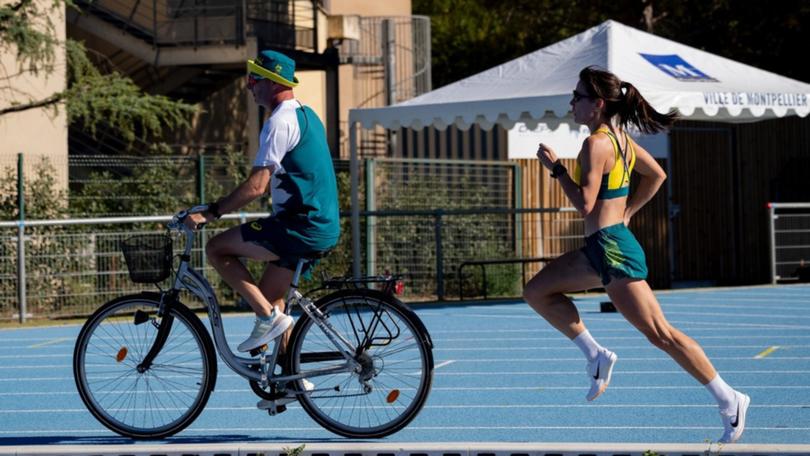
If there’s an Australian Olympian in red hot form and primed for gold, it’s Nina Kennedy.
The reigning world champion pole vaulter won the London leg of the Diamond League on the weekend and is ready to stare down the same women she beat in England when she arrives to compete at Stade de France at her second Olympic Games.
“It was really nice to jump high, look at them in the eye and say ‘I’m here to play, we all want that gold medal, but damn, I think I want it more’,” Kennedy said from the Aussie team’s training camp in Montpellier.
Sign up to The Nightly's newsletters.
Get the first look at the digital newspaper, curated daily stories and breaking headlines delivered to your inbox.
By continuing you agree to our Terms and Privacy Policy.In the search for Olympic success, the Aussies have found a home away from home on the French Mediterranean coast, 750 kilometres south of Paris.
Bright blue skies and a bright blue track could be the ingredients that make a talented Australian Athletics team among our best ever.
They’re already the largest team to travel to an away Games. At 75-strong and carrying 34 debutantes, they’re living up to the Olympic motto of “faster, higher, stronger”.
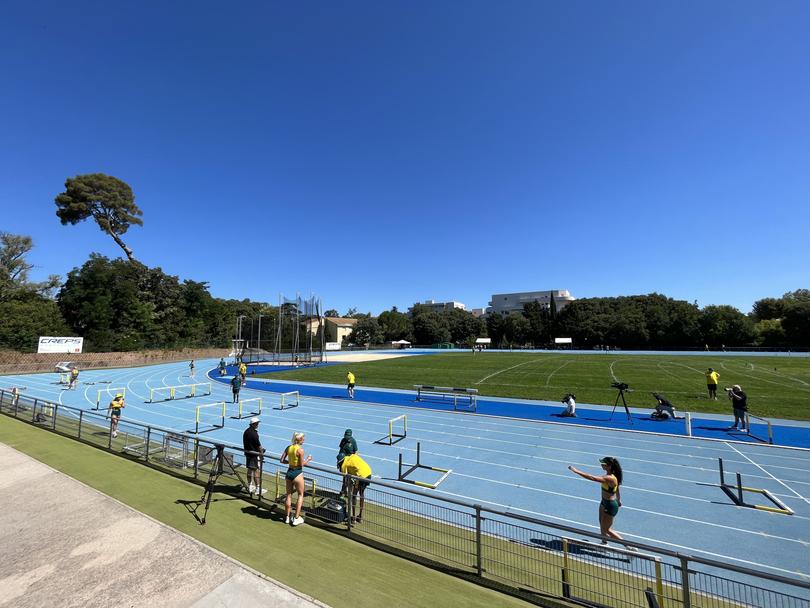
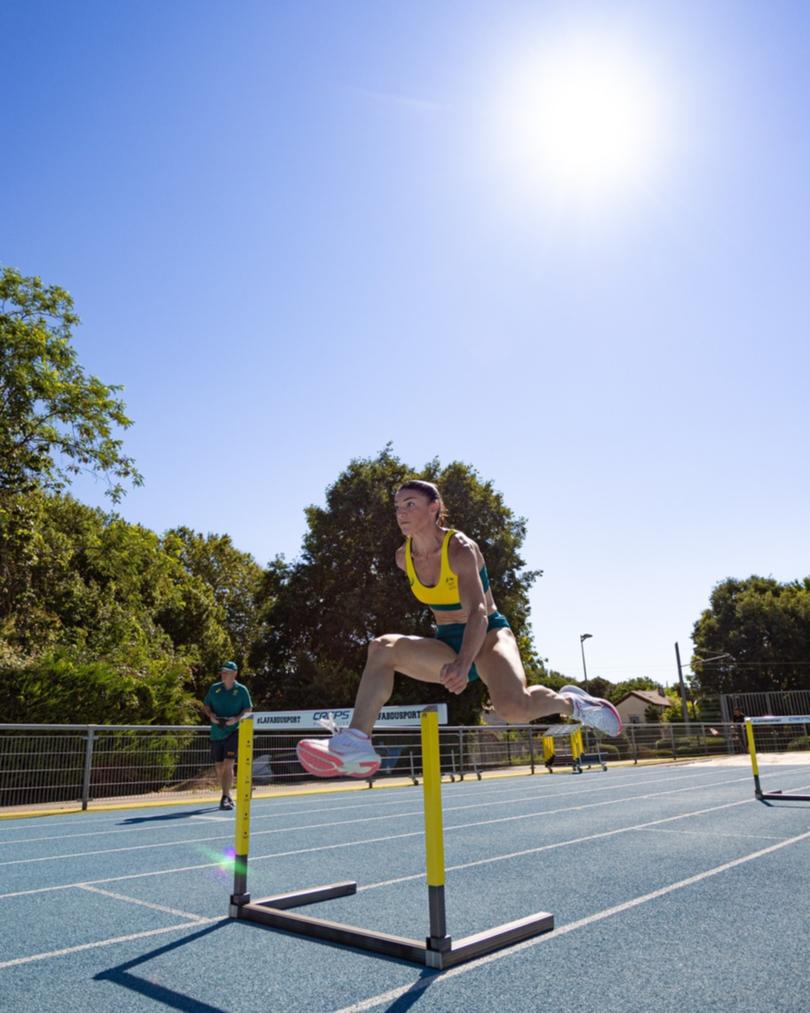
The 27-year-old Kennedy is certainly going higher. After winning Commonwealth Games gold at Birmingham in 2022, she backed it up with a World Championship in Hungary last year. The West Aussie is the one to beat.
“After I won that gold in Budapest, I have thought about the Olympics every single day, it just comes into my mind, and I want that Olympic medal so badly,” Kennedy said.
“My head’s been down, I’ve been working my arse off, and it’s really coming down to the final, and I have confidence that I can put it together.”
If Kennedy is aiming to go higher than anyone else, a band of Aussie women is hoping to go faster.
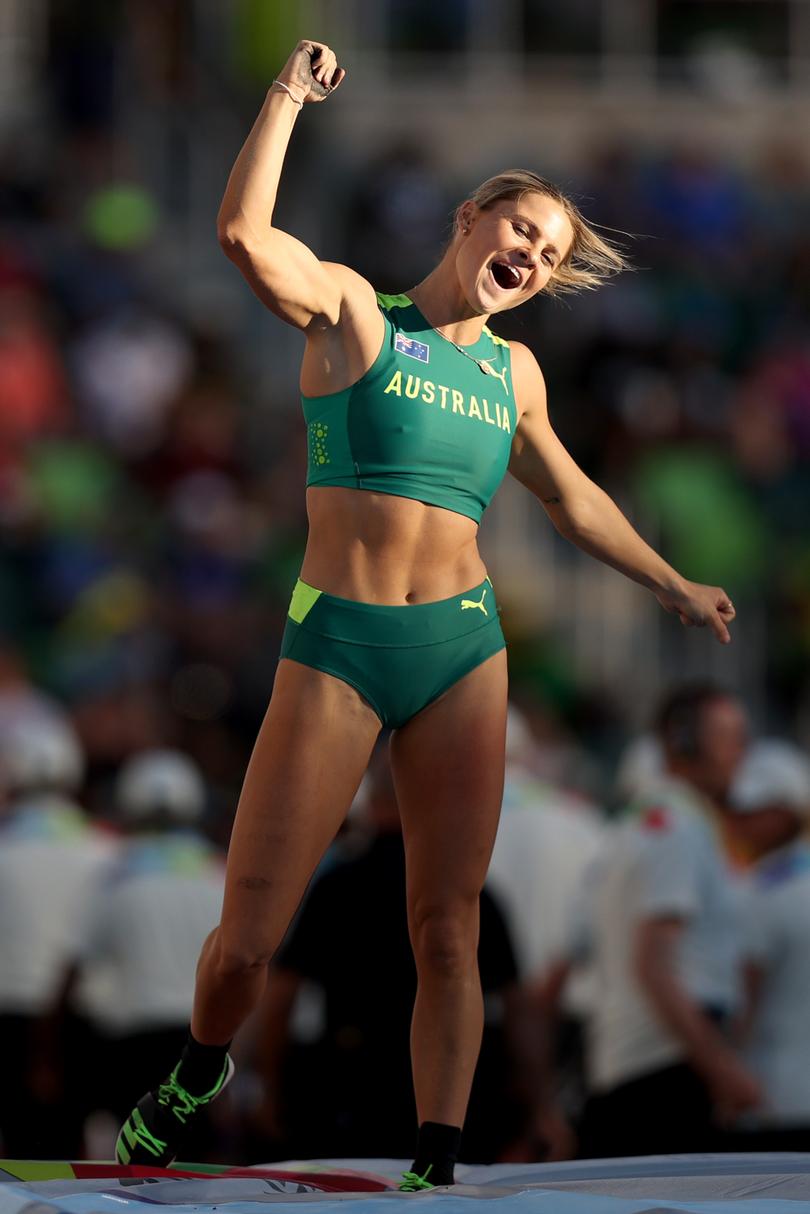
At 19 years old, Torrie Lewis is already Australia’s quickest ever woman over 100 metres, recently clocking 11.10 seconds.
In London on Saturday, she anchored the 4x100m women’s relay team to the fastest-ever time by an Aussie quartet. A national record of 42.48 seconds.
“We’ve put so much effort into this relay team, it’s great it’s finally paying off,” Lewis said, believing it all comes down to culture.
It’ll be the first time an Australian 4x100m women’s relay team has competed at an Olympics since Sydney 2000.
“One person runs fast, someone else wants to beat them. We’ve all been competing against each other these past couple of years, and we’ve got to a point where there are 5 or 6 women who are all sub-11.4 seconds and the coaches have seen this and they’ve put a lot of emphasis on the relay.”
Part of the team strategy has been Montpellier too.
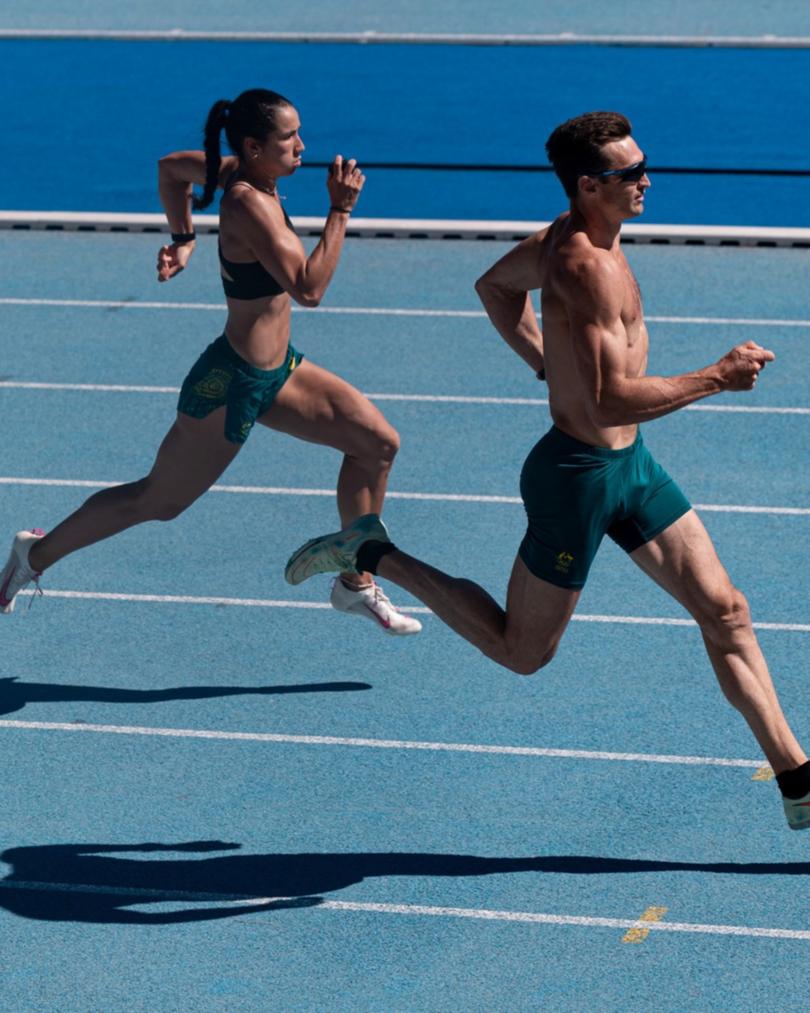
Many of the athletes are familiar with the facilities after training here in the run-up to the Budapest World Championships in 2023.
There’s a familiarity with the track, the gym and the city that limits surprises or disruptions to training schedules.
Team New Zealand and the South Africans are using the same facilities, but Stade Philippides — a short 10 minute walk from Montpellier’s historic centre — is awash with green and gold.
“We’ve been dreaming about this since we were little girls,” says 23-year-old Mia Gross who’s qualified for the 200m sprint.
She’s in camp alongside her best friend and 100m hurdler Celeste Mucci. They’re incredibly excited — and they haven’t even made it to Paris yet.
“It was kind of surreal when we got the confirmation email,” Mucci said, describing the moment they found out they’d qualified.
“It hasn’t settled in until we got here and got the uniform and everything . . . we were like ‘is this real?’ We both missed out on Tokyo and then to come back here three years later, it’s been a journey.”
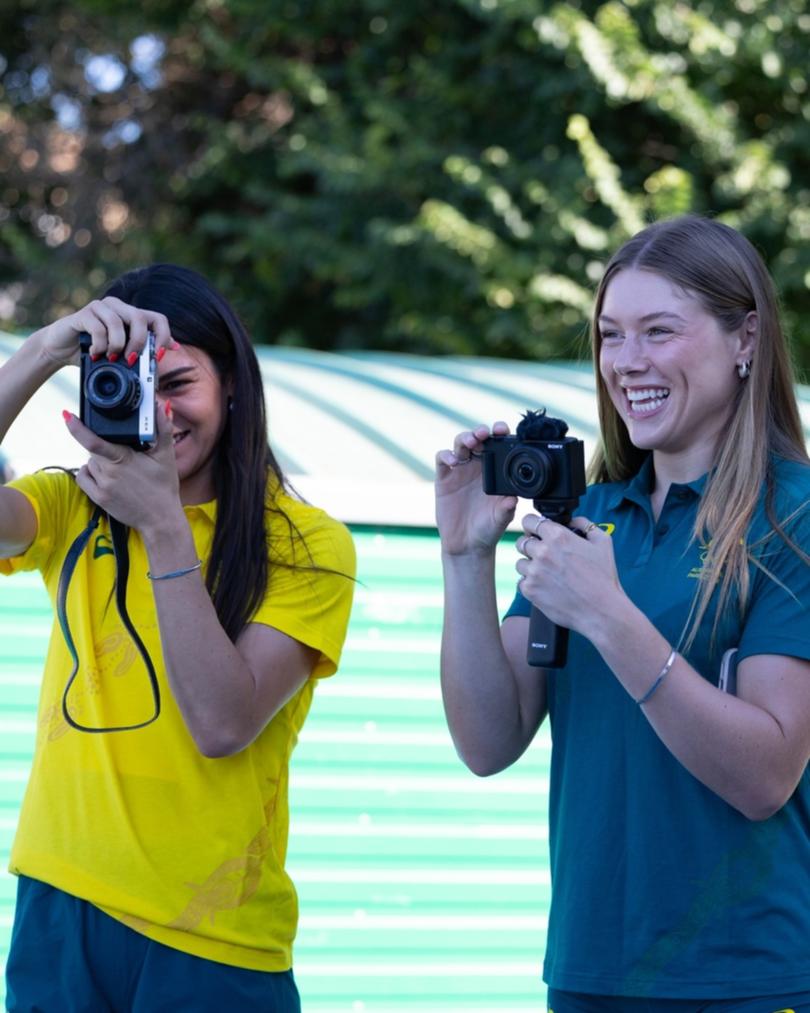
Making the Olympics hasn’t always been Josh Azzopardi’s dream. As an eight-year-old, watching on TV as Usain Bolt won the 100m final in Beijing in 2008 he was really hoping to become a rugby league star.
But in his teenage years, his speed meant a shot at the Olympics became real.
“The dream didn’t really start until I was 16 or 17 years old, and here I am a couple of years later,” Azzopardi said.
Now 24 years old, he is in the form of his life clocking two personal bests this year, earning him a very late call-up to Paris.
He only scored a late entry on July 15.
“Sometimes I go through moments where it hasn’t really sunk in yet,” he said.
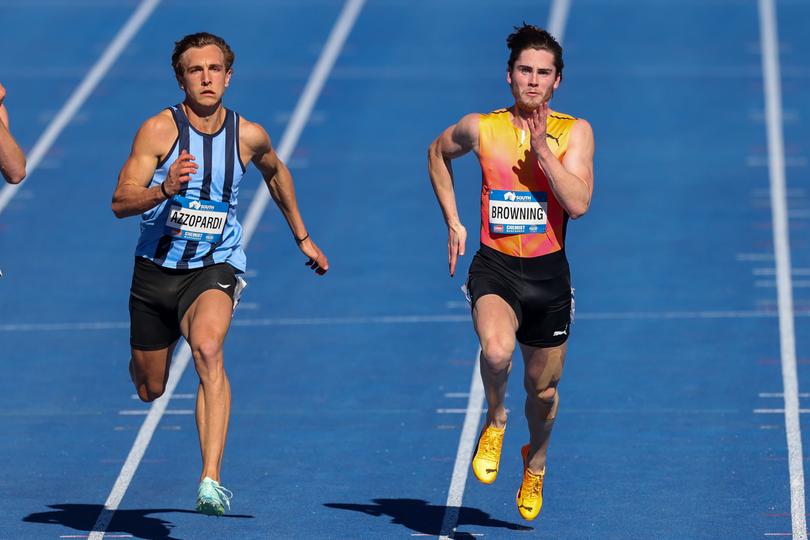
Just like the women’s sprinters, the men are out to create history. This is the first time two men have qualified for the 100m sprint at the Olympics since Sydney.
Azzopardi and fellow sprinter Rohan Browning don’t always train side by side — but they may well end up running against each other in Paris.
“There’s obviously names like Matt Shirvington and Patrick Johnson, the Australian record holder, being thrown around, so to be among those guys running in the 100 metres at the Olympics it’s a massive deal, and it’s amazing.”
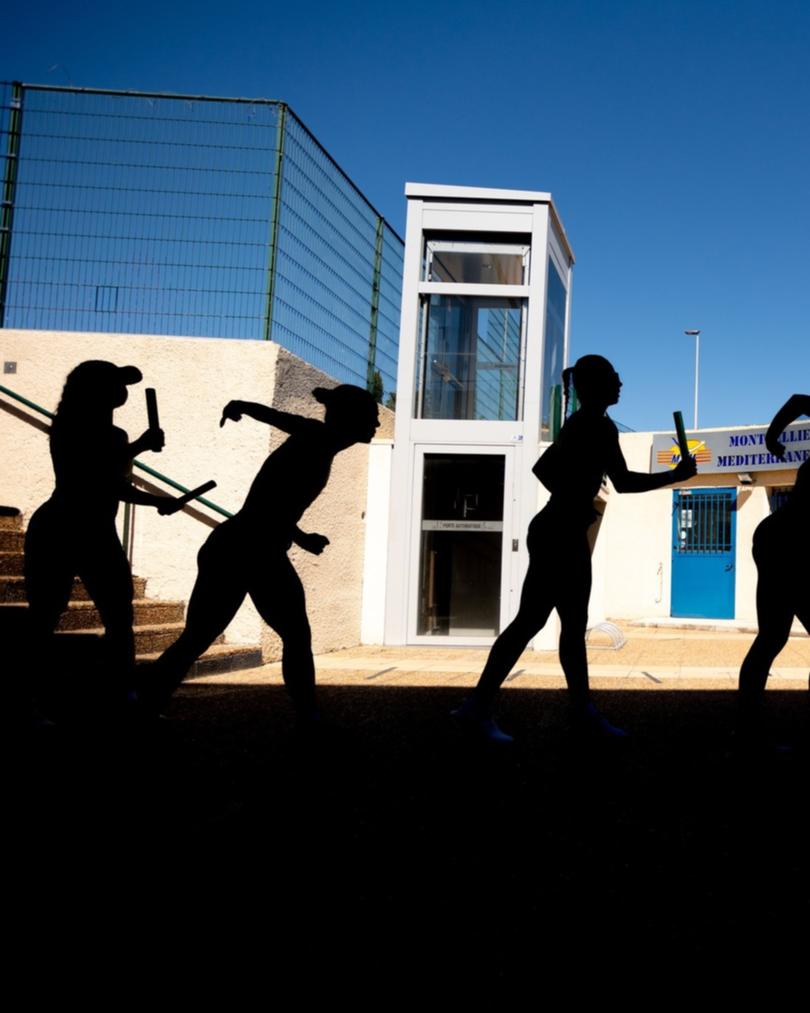
Our athletics team will miss the Opening Ceremony, preferring to remain in camp. The first wave of athletes will head to Paris a few days after the Games begin to settle into the village.
If they live up to expectations, their success may be down to their time in Montpellier.
For pole vaulter Kennedy it’s the team atmosphere that can lift athletes who spend much of the year training and competing as individuals.
“Everyone looks amazing in the green and gold and the vibes are high . . . watch out for us!”
